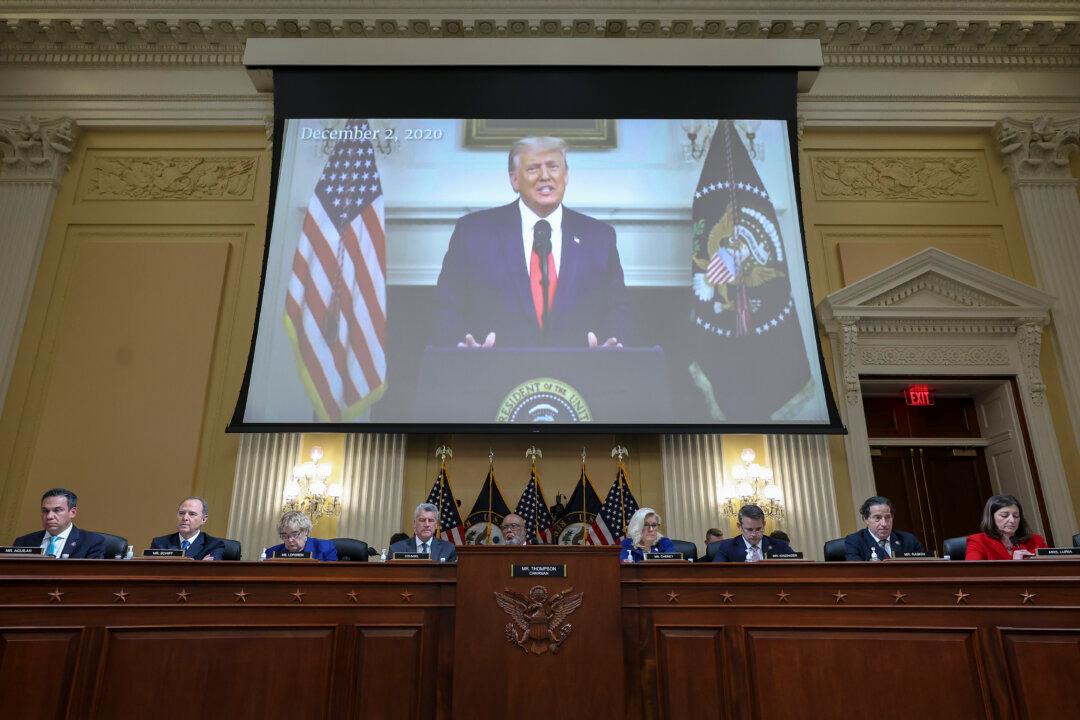The House Jan. 6 Committee on Oct. 13 voted to subpoena former President Donald Trump over his role in the events of Jan. 6.
The resolution, submitted by Ranking Member Liz Cheney (R-Wyo.), was passed by the committee unanimously in a 9–0 vote.

The House Jan. 6 Committee on Oct. 13 voted to subpoena former President Donald Trump over his role in the events of Jan. 6.
The resolution, submitted by Ranking Member Liz Cheney (R-Wyo.), was passed by the committee unanimously in a 9–0 vote.